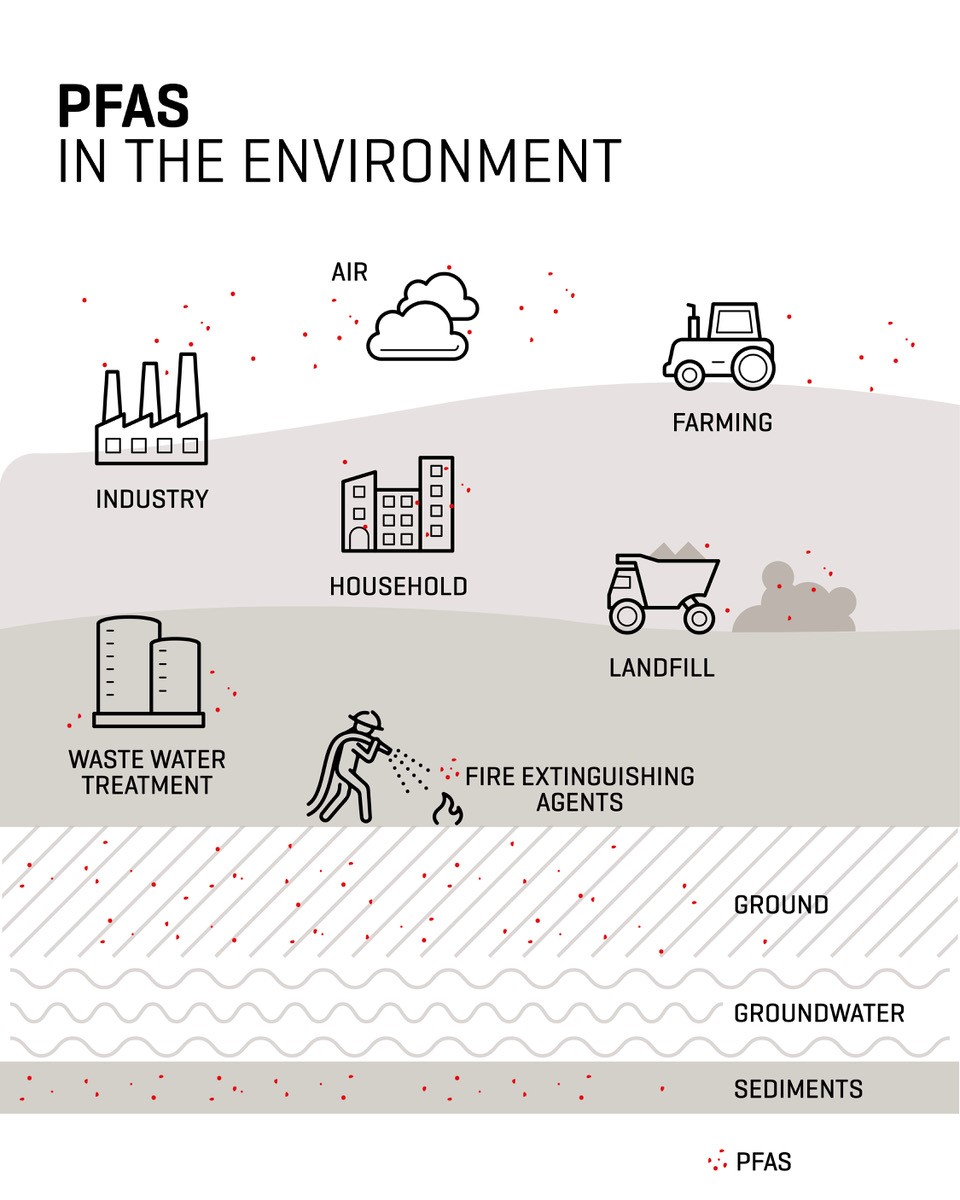High performance plastics and the PFAS restriction process
Products
·
·
IDT Industrie- und Dichtungstechnik GmbH

On February 7, 2023, the European Chemicals Agency [ECHA] published a preliminary version of the restriction dossier for per- and polyfluoroalkyl substances [PFAS] on its website.
The restriction dossier is based on an initiative of five governmental organizations from Germany, the Netherlands, Sweden, Denmark and Norway, which propose an EU-wide ban on the production, marketing, and use of all PFAS.
Situation
- PFAS belong to a very large group of substances with more than 10,000 different compounds. One carbon-fluorine molecule [CF2 or CF3] is sufficient for a substance to be counted among the PFAS.
- PFA substances are extraordinarily stable and long-lived. For this reason, they have been used for decades in a wide range of products and industrial processes.
- However, the strength and positive properties of PFAS also make them eternal chemicals that spread widely in the environment without much degradation—neither UV light nor microorganisms nor naturally occurring chemical processes.
- To prevent the unnecessary use of PFAS agencies from Germany [BAuA, BfR, UBA] and the other four countries have prepared a restriction dossier and submitted it to ECHA.


Background
- The critical consideration of PFA substances has its origin in the 2004 Stockholm Convention on Persistent Organic Pollutants, a global treaty to protect human health and the environment from chemicals that remain intact in the environment for long periods of time.
- The current restriction dossier works towards a broad restriction of PFAS under the EU chemicals regulation REACH.
- The aim of the restriction initiative is to ban the production and use of all PFAS in the EU and prohibit articles containing PFAS on the EU market, presumably by 2025.
- The import of finished PFAS products from non-EU countries would also be affected.
- A decision on the restriction proposal, which was submitted to ECHA on January 13, 2023, has to be made within one year.
- The closure of the 3M subsidiary Dyneon in Gendorf by the end of 2025 is certainly a first consequence of this development.
- As a result, a world market leader of modified polymer specialty compounds and one of the largest fluoropolymer manufacturers in Europe will disappear.
Differentiation
- The focus on all PFAS compounds makes it difficult to differentiate various PFA substances.
- Fluoropolymers such as PTFE, PFA, FEP, ETFE, etc. are classified as Product of Low Concern [PLC] by the OECD [Organization for Economic Co-operation and Development].
- This classification means that fluoropolymers do not exhibit acute or subchronic systemic toxicity, irritation, or sensitization, are not bioavailable, are not water-soluble, and do not pose a potential hazard when used as intended.
- Their toxicological and eco-toxicological profile differs significantly from the broad mass of PFA substances.
Our Position
- Fluoropolymers are high-performance plastics used in critical applications where reliability and safety are priorities and where no alternatives exist [e.g., in meeting TA Luft requirements].
- Fluoropolymers are crucial for technical progress in many areas. Gaskets and technical components for vital industries but also future technologies critical to the implementation of the Green Deal won’t be pushed forward if the intended ban becomes reality. These include, for example, gaskets used in the production of green hydrogen, components for the operation of PEM fuel cells, gaskets for the semiconductor industry, and many more areas.
- We take the PFAS concern very seriously. Health, safety, and sustainability are our highest priorities.
- We believe that science-based regulatory measures for PFAS are essential.
- We believe that differentiation is necessary to distinguish substances according to their intrinsic properties, toxicological profile, and essential uses.
Our Activities
- We are committed to a sustainable future, investing in research and development for environmentally friendly and efficient products as well as responsible and safe manufacturing, use and marketing.
- We are participating in the 6-month public consultation to evaluate the restriction proposal, contribute relevant information on truly feasible opportunities, and seek changes where necessary.
- We are participating in the Socio-Economic Analysis [SEA] prepared by the European Sealing Association [ESA] and are represented in the relevant working groups.
- We are at your side, providing you with the latest information and developing solutions together with you.
- We are testing alternatives to the Dyneon materials, work with research institutes, and are open to PTFE substitutes.